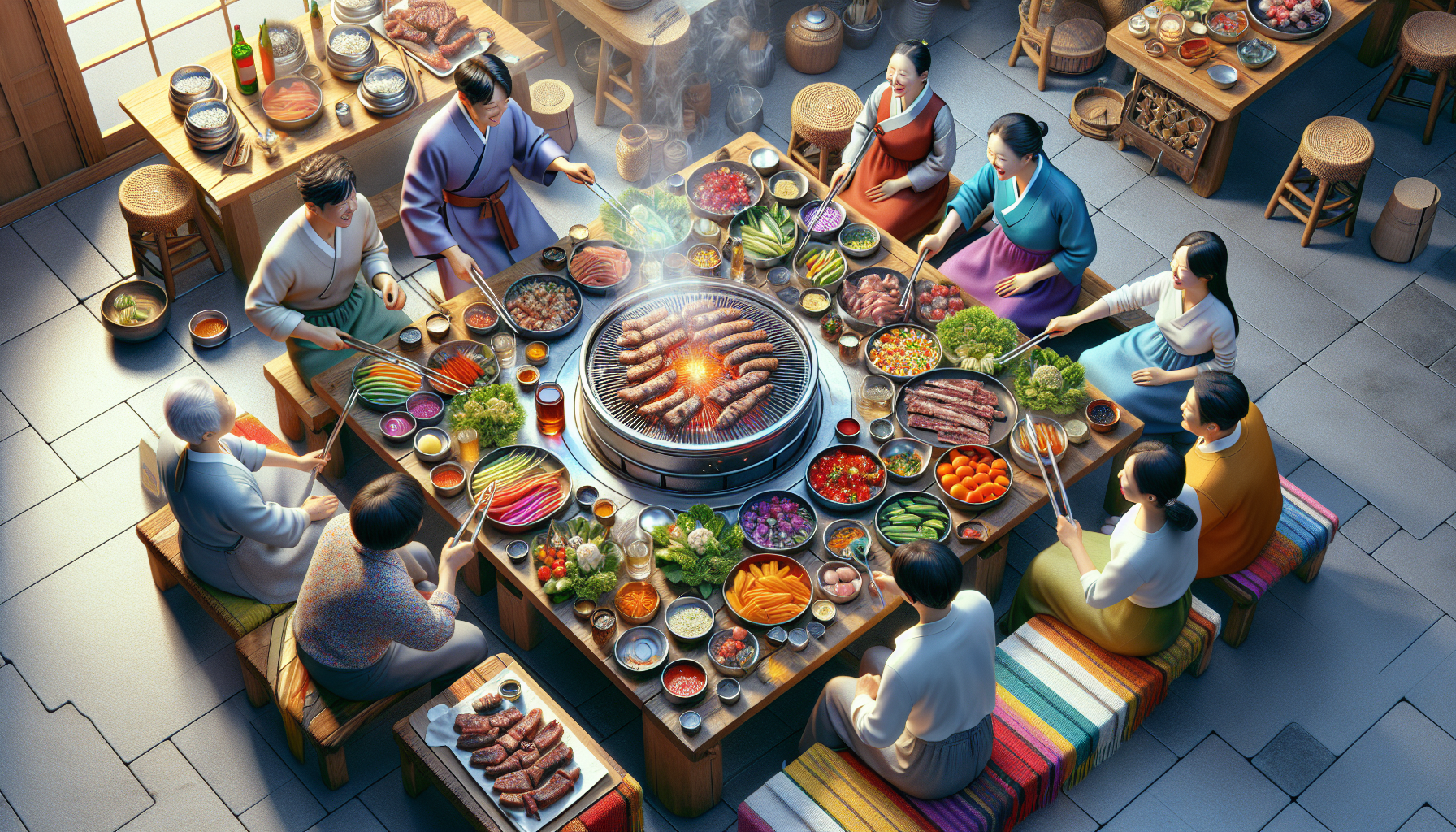The Flavorful World of Korean BBQ
Korean BBQ, known as “gogigui” in Korean, is more than just a meal; it’s a communal dining experience deeply ingrained in Korean culture. It involves grilling a variety of meats directly at the table, which fosters social interaction and celebrates the art of shared meals. Traditionally, this cuisine utilizes charcoal grills to impart a distinct smoky flavor to meats and vegetables.
Traced back to ancient times when wood and charcoal were primary fuels, Korean BBQ has now evolved to incorporate eco-friendly alternatives. With sustainability gaining momentum in gastronomy, this beloved tradition is adapting, exploring renewable charcoal sources and even electric grills that mimic their traditional counterparts, thereby reducing carbon emissions while preserving the authentic taste of Korean BBQ.
The Charcoal Conundrum: Environmental Impacts and Alternatives
Charcoal production poses significant environmental challenges due to deforestation and greenhouse gas emissions. These factors present a dilemma for BBQ lovers who wish to reduce their environmental footprint while still enjoying traditional flavors.
Sustainable alternatives like biochar, created from agricultural waste, offer an eco-friendly solution by sequestering carbon when returned to the soil. Coconut shell charcoal provides another option, utilizing waste from coconut processing to burn hotter and longer than traditional charcoal, which also supports coconut farming communities.
While each fuel imparts distinct flavors, enthusiasts can experiment with these sustainable alternatives to find a balance between environmental responsibility and the classic taste of Korean BBQ.
Greening Your Gogi-gui: Sustainable Meat Sourcing
Opting for locally sourced, grass-fed meats not only enhances flavor but also supports sustainable agriculture by reducing transportation-induced carbon emissions. [Source: North Central PA] Similarly, plant-based alternatives are making their way to the grill, offering meat-like textures and flavors with a lower environmental impact. [Source: Nature]
Thoughtful portioning and preservation methods, such as vacuum sealing and fermentation, reduce food waste, creating a BBQ experience that’s as sustainable as it is delicious. Incorporate these practices and contribute to a more responsible culinary world.
Eco-Friendly Banchan: Side Dishes with a Sustainable Twist
Incorporate seasonal, locally sourced vegetables into your banchan to reduce your carbon footprint. Simple preservation techniques like blanching can extend their shelf life and lower food waste. [Source: HuffPost]
Reducing plastic waste during preparation is equally important. Follow innovative examples like Grove Collaborative, which emphasizes reducing plastic use in favor of sustainable alternatives. [Source: WWD] Fermentation is also key to Korean dining; kimchi and pickled vegetables enhance your meal naturally, reducing reliance on refrigeration.
Sustainable Tableware: Beyond Disposables
Leverage the sustainability of stainless steel, as used traditionally in Korean dining, to minimize disposable waste. Reusable, heat-resistant alternatives to common BBQ tableware provide long-term environmental benefits. [Source: Financial Times]
For zero-waste dining, invest in durable, reusable BBQ equipment, cloth napkins, and glass or metal containers, and consider recycling and composting any unavoidable waste. Sustainably clean your tableware with natural products to maintain an eco-friendly kitchen.
The Future of Korean BBQ: Innovations in Sustainable Grilling
As the grill evolves, energy-efficient designs and smart technology become prominent, reducing charcoal use and maximizing cooking efficiency. Inspiration from leaders like Schneider Electric informs new grill designs that are more environmentally friendly. [Source: Corporate Knights]
Communities are promoting sustainable practices through events that educate on eco-friendly methods, such as using sustainable charcoal alternatives or plant-based BBQ options. With manufacturers exploring sustainable materials for grill construction, the future promises a meld of tradition with ecological awareness.
Conclusion: Savoring Tradition While Embracing Sustainability
Balancing Korean BBQ’s rich heritage with modern sustainability is both a challenge and an opportunity. Supporting local, eco-friendly meat producers and incorporating plant-based options into your BBQ are pragmatic steps toward a sustainable future. [Source: Chicago Tribune]
Employ energy-efficient grills and minimize waste through smart consumption choices, ensuring that this communal and flavorsome tradition persists. As Isabel Durkin advocates, preserving our environment also enhances our dining experiences—let this ethos guide your next Korean BBQ feast.
Sources
Financial Times – How Stainless Steel Brings Innovation to Durability
Chicago Tribune – Environmental Sustainability Gains Momentum in Several NWI Communities
Nature – Innovative Plant Protein-Based Meat Analogues
North Central PA – PASA Sustainable Agriculture Conference
Business Insider – 9am Dora Pro Smart Electric Standing Desk
Financial Times – Steel Dynamics Sustainability Efforts






That’s awesome! Thanks for sharing
Comments are closed.